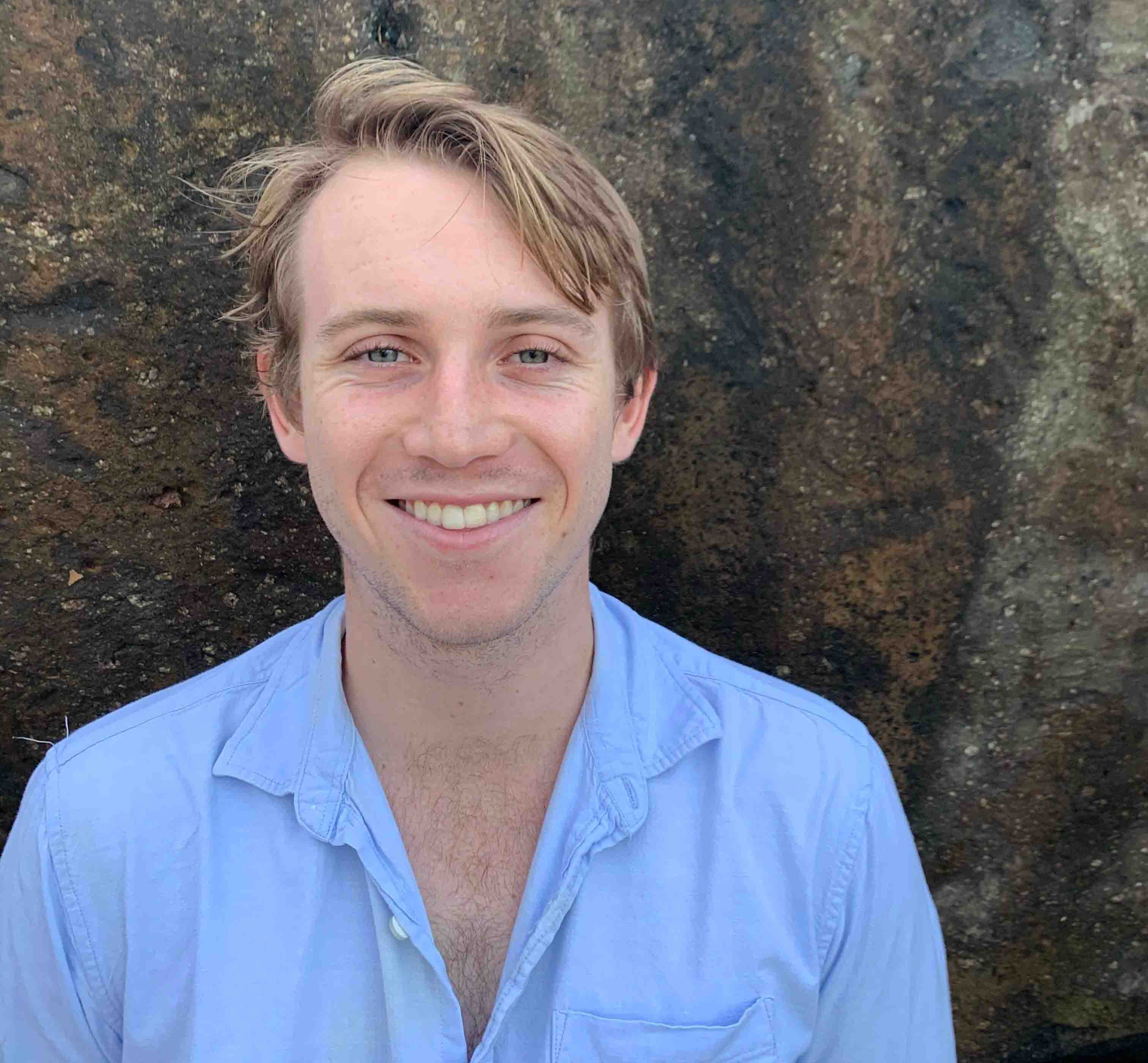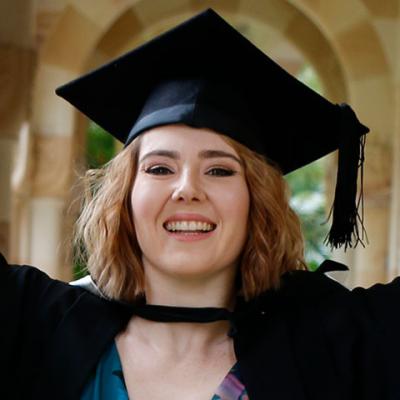Journalism and Mass Communication
Meeting the expectations of the changing media landscape.
Gain the knowledge vital for exciting careers in media and related professions.
Courses cover the study of journalism and other forms of public communication, along with global journalism, mass communication and digital media.
You'll also gain valuable insights into current production values and practices from the on-site Media and Production Support team (MaPS), and industry professionals drawn from leading media outlets.
Despite the highly competitive nature of journalism, UQ graduates have high success rates in securing jobs across the media – in metropolitan and national newspapers, commercial and public radio and television, news agencies and magazines in Australia and around the world, with many now in senior positions.
Study Options
Undergraduate
Bachelor of Arts – Journalism and Mass Communication
Diploma in Arts – Journalism and Mass Communication
Honours
Bachelor of Journalism (Honours)
Postgraduate coursework and research
Learning Pathways
Below is a list of courses you may study in Journalism and Mass Communication. To view more details visit the program information page for the Bachelor of Arts or Diploma in Arts.
Level One
Journalistic Narratives (JOUR1112)
Introduces a key aspect of journalism, developing your ability to report and deploy a variety of approaches to reporting. This course focuses on working through and understanding the reporting process and provides opportunities to develop practical reporting skills across a range of ‘platforms’.
Understanding the News (COMU1050)
Examines news as a global cultural product and practice across print, broadcast and online platforms. This course utilizes methods such as framing, agenda setting, content analysis, and discourse analysis to analyse the structure and content of news. It will equip you with the knowledge of emerging and current issues that inform news reporting an production across multiple platforms, including constraints that underpin journalism practice, and the fundamental theories of journalism and communication.
Media and Society (COMU1120)
Examines and critically assesses the relationship between media and society. You will study how media and cultural industries shape our experience of the world. This course examines how media are used to represent the world and exercise power in society. Critical attention is given to the meaning-making, participatory and data-processing capacities of media.
Level Two
Communication Research Methods (COMU2030)
Understanding the world and a way of identifying which claims and conclusions can be trusted. This course will provide a foundation for the next level of discipline-specific research methods. At the end of the semester, the goal is to ask yourself two questions any time you are confronted with a research claim of conclusion: what does the research say? And can I trust the research?
Communication Law and Ethics (COMU2160)
Examines regulations, laws and ethical issues that impact on communication practitioners and journalists. You will cover a broad range of fields within modern democracies including free speech, privacy, contempt, defamation, copyright, freedom of information and confidentiality.
Intercultural Communication (COMU2170)
Critically examines the relationship between culture, identity and communication. You will be introduced to theories and skills of research and professional practice in intercultural communication. This course’s goal is to equip you with the capacity of autonomy, expert judgement, adaptability, and responsibility as an effective intercultural communicator in the global society
Broadcast Journalism (JOUR2000)
Applies the journalistic foundations to audio and video journalism, learning how to report, script, narrate, produce, edit, and distribute radio and TV news packages and short-form audio and video documentaries. You will learn specialised skills used to tell engaging factual stories for digital platforms.
International Journalism & Mass Communication (JOUR2221)
Provides an understanding of different theories of mass media systems, their philosophical foundations, and basic principles. We will look at the varying relationships of mass media to politics and society and their important role in social and political change. You will examine the different ways journalism is practised in different cultures and explores the underlying factors that influence such practices, including the technological changes that have transformed journalistic practices across the world.
Level Three
Media Platforms (COMU3110)
Examines how media platforms are comprised of data-processing infrastructure, algorithms, interfaces, and mobile devices. You will critically explore the engineering projects of media platforms in simulation, surveillance, sensing, machine learning, artificial intelligence, and augmented reality. This course explores how media organisations engineer and experiment with our social lives, bodies, and lived experience.
Digital Analytics (COMU3120)
Develops critical understanding and skills in the analysis of different media datasets. This course applies advanced computational communication research methods to media content, platforms, and networks. You will learn how to use a coding language to collect, process, analyse, and visualise digital data.
Social Justice Storytelling (JOUR3100)
Provides a platform to gather, write, and produce social justice news stories and will also focus on story preparation and risk mitigation. This course will outline professional and ethical guidelines on a variety of news narratives. We will also explore theoretical concepts for producing human rights journalism in a digitally-disrupted news market and will highlight the role and impact of the journalist in producing human-focused stories that accurately reflect complex narratives. This course will investigate the notion of reflexivity in news practice and how this is important for the well-being of journalists as well as producing fair and balanced stories.
Journalism Project (JOUR3401)
Based on supervised self-directed learning. This course provides an opportunity to undertake a project in an area of special interest, and to explore issues related to journalism and communication, drawing on the theoretical and practical experiences gained while studying these fields. You will have the opportunity to think, discuss, analyse, and undertake a project on issues relating to journalism.
Testimonials
 "UQ well and truly laid the foundations and taught me the fundamentals of what it takes to succeed in the journalism industry. My studies gave me the confidence to seek out opportunities and go beyond the classroom."
"UQ well and truly laid the foundations and taught me the fundamentals of what it takes to succeed in the journalism industry. My studies gave me the confidence to seek out opportunities and go beyond the classroom."
Finn Morton, Bachelor of Journalism
 "I was in my first year of study at UQ when I was offered a junior role...Over the next few years I put my hand up for everything: I worked in the news library, filled in as a PA, assisted the chief of staff, rolled autocue, researched stories, and put bulletins to air from the control room."
"I was in my first year of study at UQ when I was offered a junior role...Over the next few years I put my hand up for everything: I worked in the news library, filled in as a PA, assisted the chief of staff, rolled autocue, researched stories, and put bulletins to air from the control room."
Sylvia Jeffreys, Bachelors of Arts/Journalism
 "During my time studying journalism we were encouraged and supported to find internships. I interned at the ABC, Brisbane Times and more, opportunities that gave me incredible experience in my field before graduation."
"During my time studying journalism we were encouraged and supported to find internships. I interned at the ABC, Brisbane Times and more, opportunities that gave me incredible experience in my field before graduation."
Georgina Auton, Bachelors of Journalism/Bachelor of Laws (Honours)
The Student Experience
UQ Journalism and Communication Society (UQ JACS)
JACS holds various events dedicated to helping students connect with their peers and professionals in the journalism and communication fields. They hold two professional networking evenings every year, where professionals from all types of industries offer one on one advice about what it takes to work in the profession.
Media and Production Support (MaPS)
The MaPS Team provide training and support in the following ways:
- Production workshops taught through-out semester.
- These workshops teach fundamental production skills, train students in the use of equipment available through JACtech and The Adobe Creative Suite software. To view and sign up for available workshops visit https://scastudents.eventbrite.com.au
- Current MaPS Courses include:
- Video Editing with Adobe Premiere Pro
- Publishing your online portfolio using Wordpress
- Audio recording and Adobe Audition foundations
- Photography foundations
- Digital Video Production foundations
- Image editing fundamentals in Adobe Photoshop
